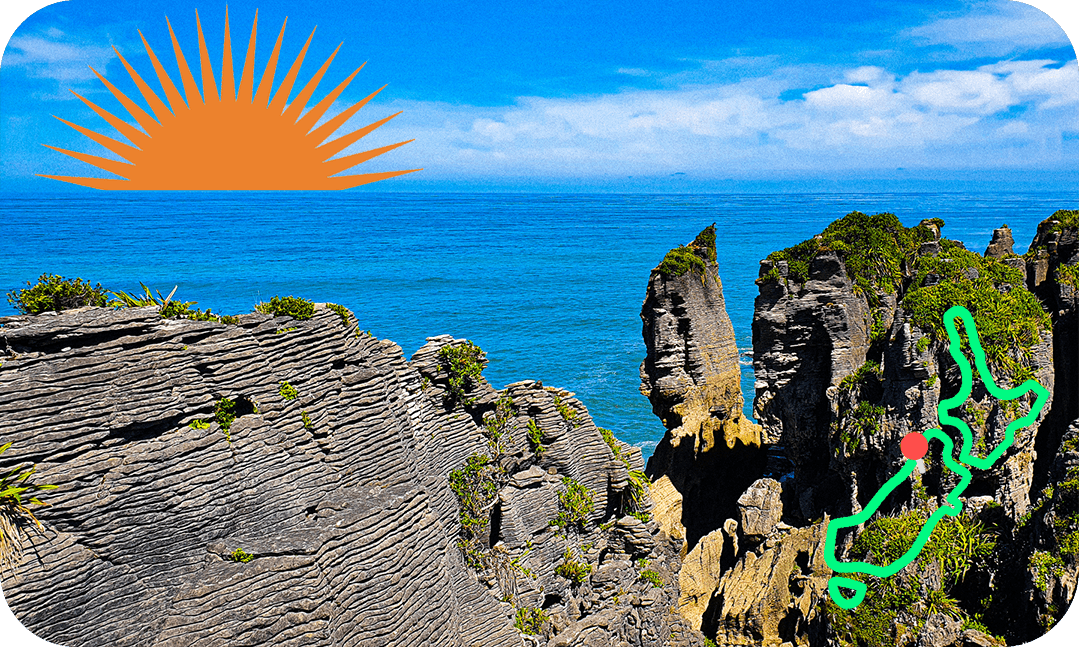In this story from the Electric Highway, Don Rowe investigates a rising trend in outdoor accommodation.
Ah, the big old canvas tent, pastel icon of summer and source of endless intra-family arguments. There are few things that say “Christmas at the beach” quite like 400 kilograms of poles and cloth, a sticky tarpaulin floor and beads of sweat running off your dad’s head. Every year they sprout like mushrooms across the country, the Pohutukawa flower of the lawn, signalling the holiday season has begun.
Or at least they used to. As I drove around the South Island in the BMW iX, travelling from Gillespies Beach to Okarito Bay, from Lake Kaniere to Punakaiki Beach, I noticed the circus tents of yore had given way to a sleeker, more high-tech solution. Like an Icebreaker turtleneck, the rooftop tent is form meets function, a convenient and comfortable answer to the problem of where to pitch the bloody tent – and especially when it’s pissing down and windy.
You’ve probably seen them. Packed down, they’re like a stack of plywood covered with a waterproof sheet, but pull up to any campsite and there they are, popped up like so many umbrellas. Originally conceived as a snake-proof, spider-proof sanctuary up above the ground, the rooftop tent has captured the camping market abroad, and now local manufacturers are getting in on the action.
—
This story from the Electric Highway is brought to you by BMW i, pioneering the new era of electric vehicles. Keep an eye out for new chapters in Don’s journey each week, and to learn more about the style, power and sustainability of the all-electric BMW i model range, visit bmw.co.nz.
—
Performance and survival specialist Ben Logan, director of adventure firm Logan Lore, says that with the introduction of lockdowns and the closure of New Zealand’s international borders, the famous Kiwi sense of adventure has turned inwards. And with foreign cultures and exotic locations off the table, many people are looking for more than big tents and BBQs at the beach.
“New Zealanders have been locked up for a long time, like everyone, and we haven’t been able to travel internationally. So the outlet is to explore New Zealand. Traditionally that exploration was the Easter holidays or Christmas or Labour Weekend, heading to the same campsite your family has been to for the last 5,000 years, but now there are modern cooking systems and modern rooftop tents and it’s made real adventure really convenient. There’s a real sense of freedom.”
In a strange twist of irony, that freedom borne of limitations has pushed many New Zealanders into seeing the country like tourists do. Sports like adventure hiking, climbing, alpine exploration and trail running have experienced massive domestic booms, says Logan, and the economic incentives have seen local manufacturers, both established and neophyte, driving an evolution in equipment.
“Anyone making rooftop tents at the moment is very, very busy, and there has been an explosion in new companies coming onboard as well. The evolution of the products has grown as well. Traditionally, rooftop tents were soft canvas, and they were good but in windy conditions they were diabolical. So we’ve seen the birth of a lot of hard shell rooftop tents. Everything about rooftop camping, and camping in general, has evolved at lightning speed over the past couple of years.”
On the shore at Hans Bay, while the weka darted around our feet in search of smoked kahawai, my friend and recent rooftop tent owner Elijah McDean told me that after Covid made international travel impossible, and with a new baby to think about, his young whānau decided to see more of New Zealand instead.
While supply chain issues and huge demand meant there was a significant delay in receiving his tent, it had arrived in time for the Christmas holidays. Weeks later they were still on the road, chasing the best fishing on the West Coast.
“Covid didn’t really change the way we camped itself. If anything it made it more enjoyable because nobody was around.”
One night, as we surfcast off the beach, that felt truer than ever before. We could have been the last people on earth – and with a chilly bin full of lemonfish, quite happily so. And while the particular iX I was driving didn’t have a roof rack, it was hard not to find myself harbouring dreams of installing a tent and sleeping above, rather than on, many of the beautiful and remote DOC campsites across the country without battling the wind, rain and groundwater.
If the last couple of years have shown us anything, Logan says, it’s that life may not be as predictable, reliable and safe as we previously assumed. With that realisation has come a desire for adaptability, resilience and the ability to thrive individually and collectively. There’s a certain element of prepper-infused “bug out” capabilities that Kiwis are chasing, a hearkening back for pioneer roots, real or imagined, and even just on the weekend.
And while you’re not in the gold souks of Dubai or deep within the catacombs of Paris, Logan says exploring the backcountry of Aotearoa can be just as meaningful and transformative.
“A combination of not being able to do their yearly overseas travel and the stress of the last two years has definitely been on people’s minds, so being able to push yourself to go somewhere remote, where maybe a lot of people haven’t been before, it’s very liberating. It has the real potential for mental growth.”
“But once you start experiencing secluded beaches and mountains and forests where nobody else is around, it’s hard to go back to the old canvas tent.”


